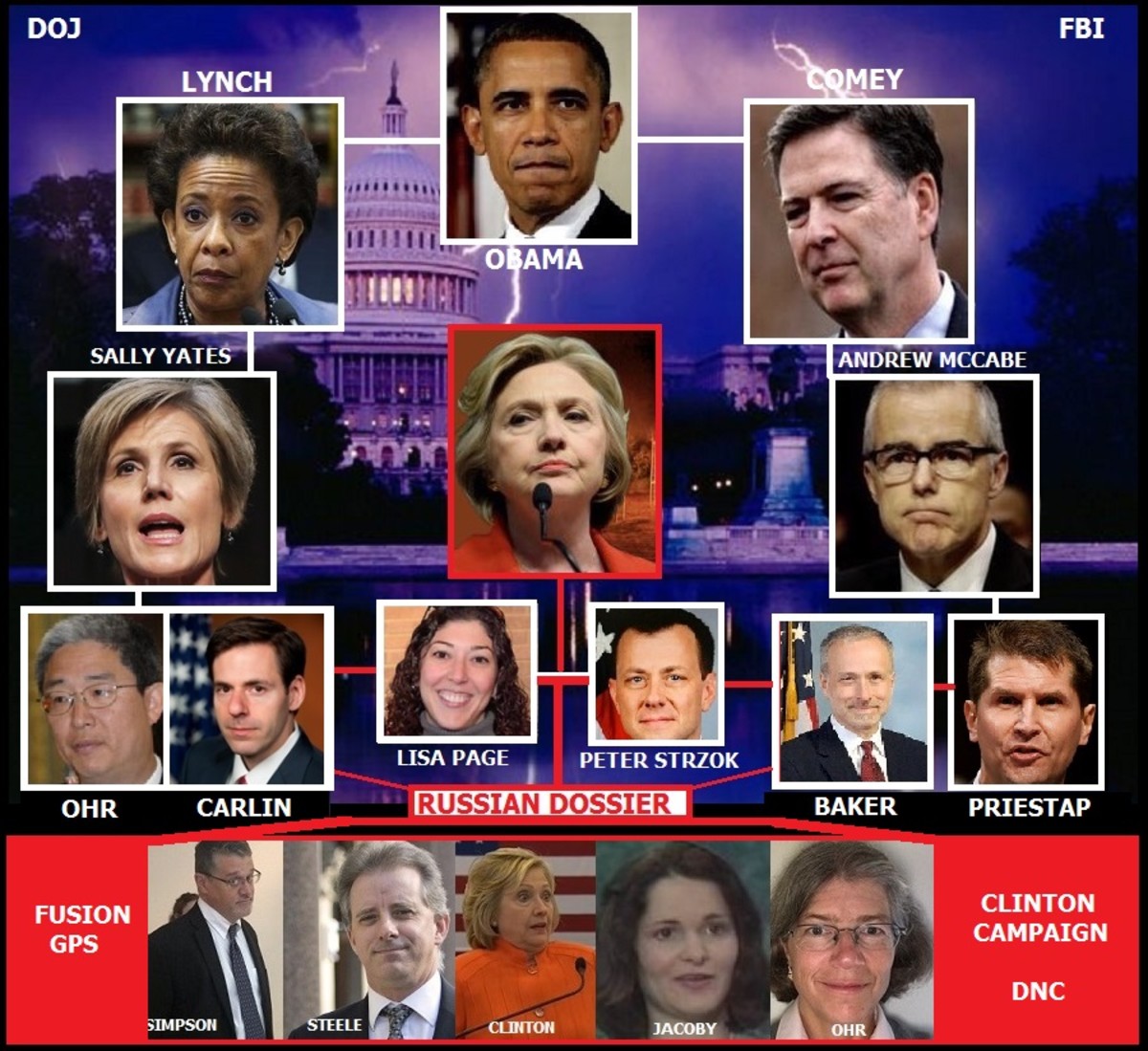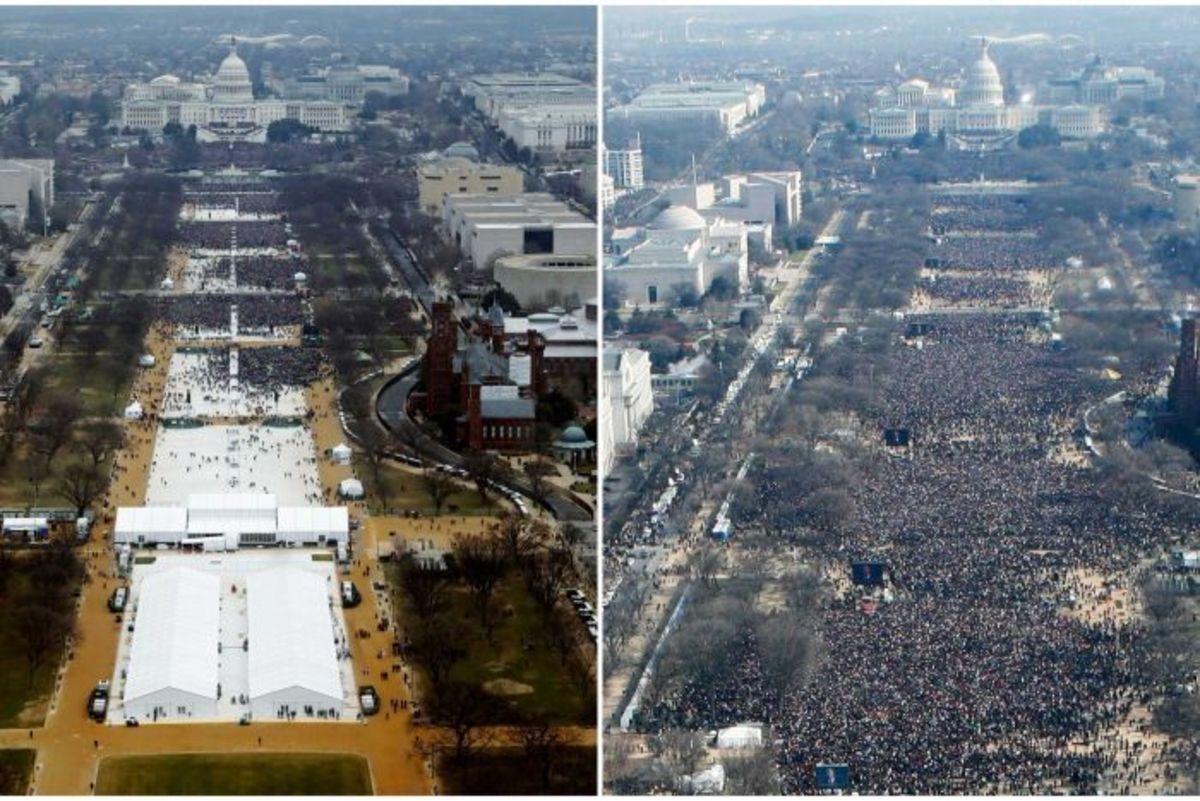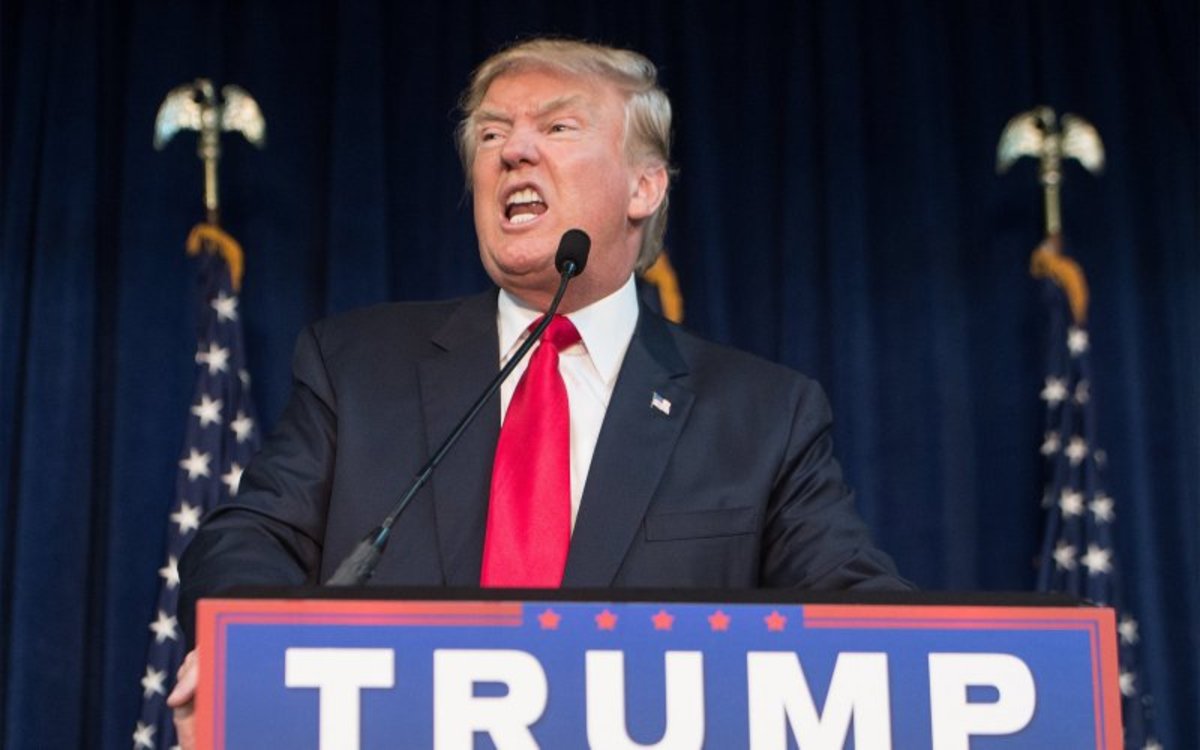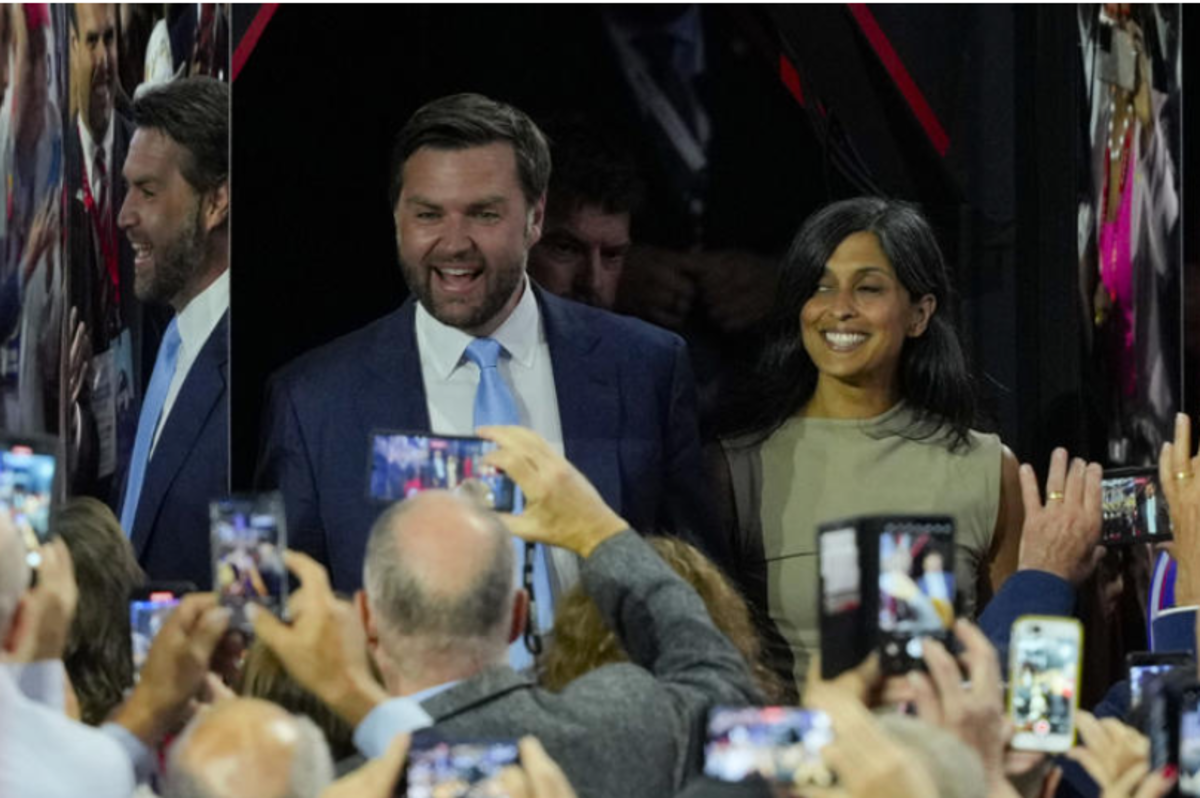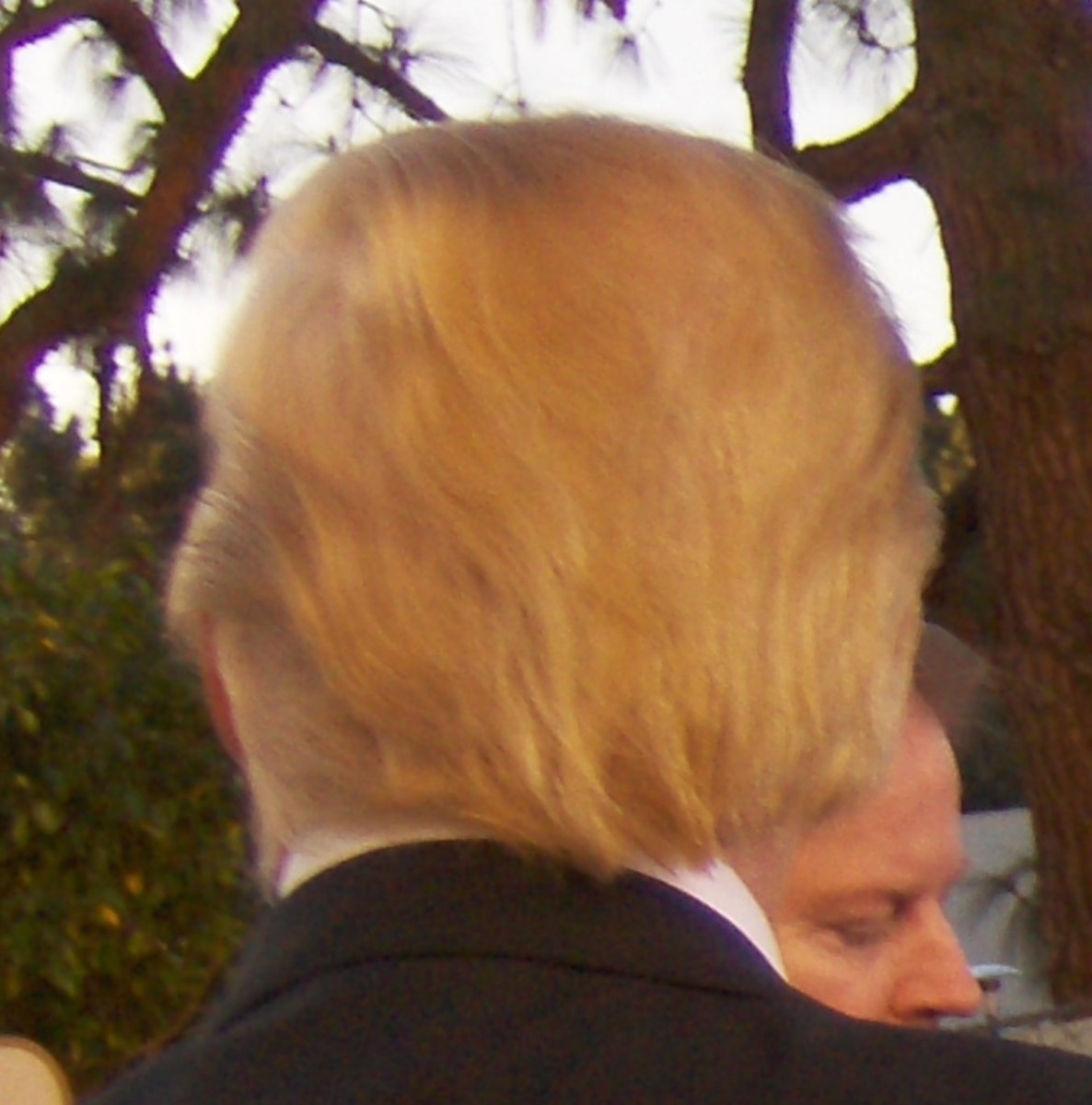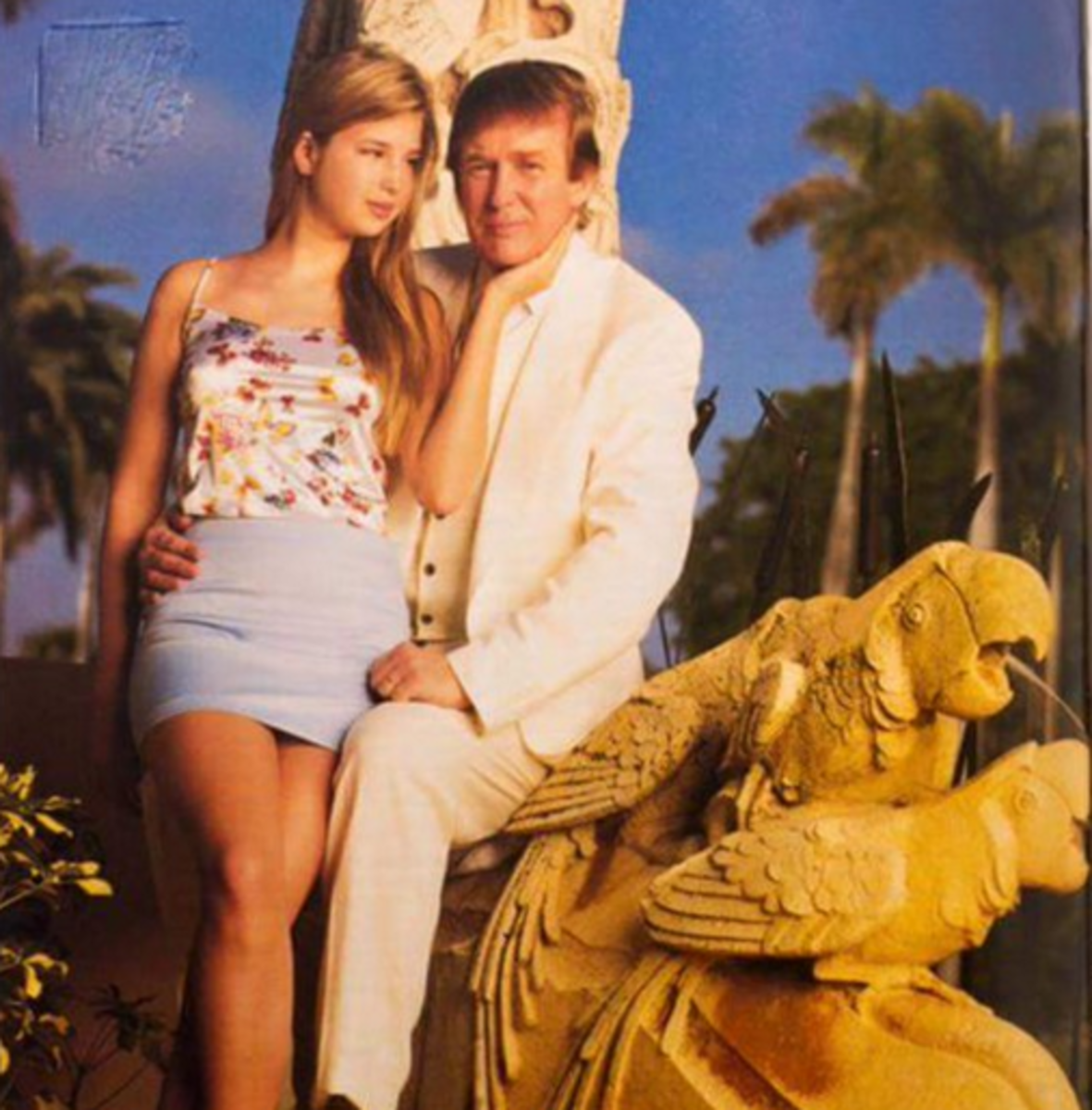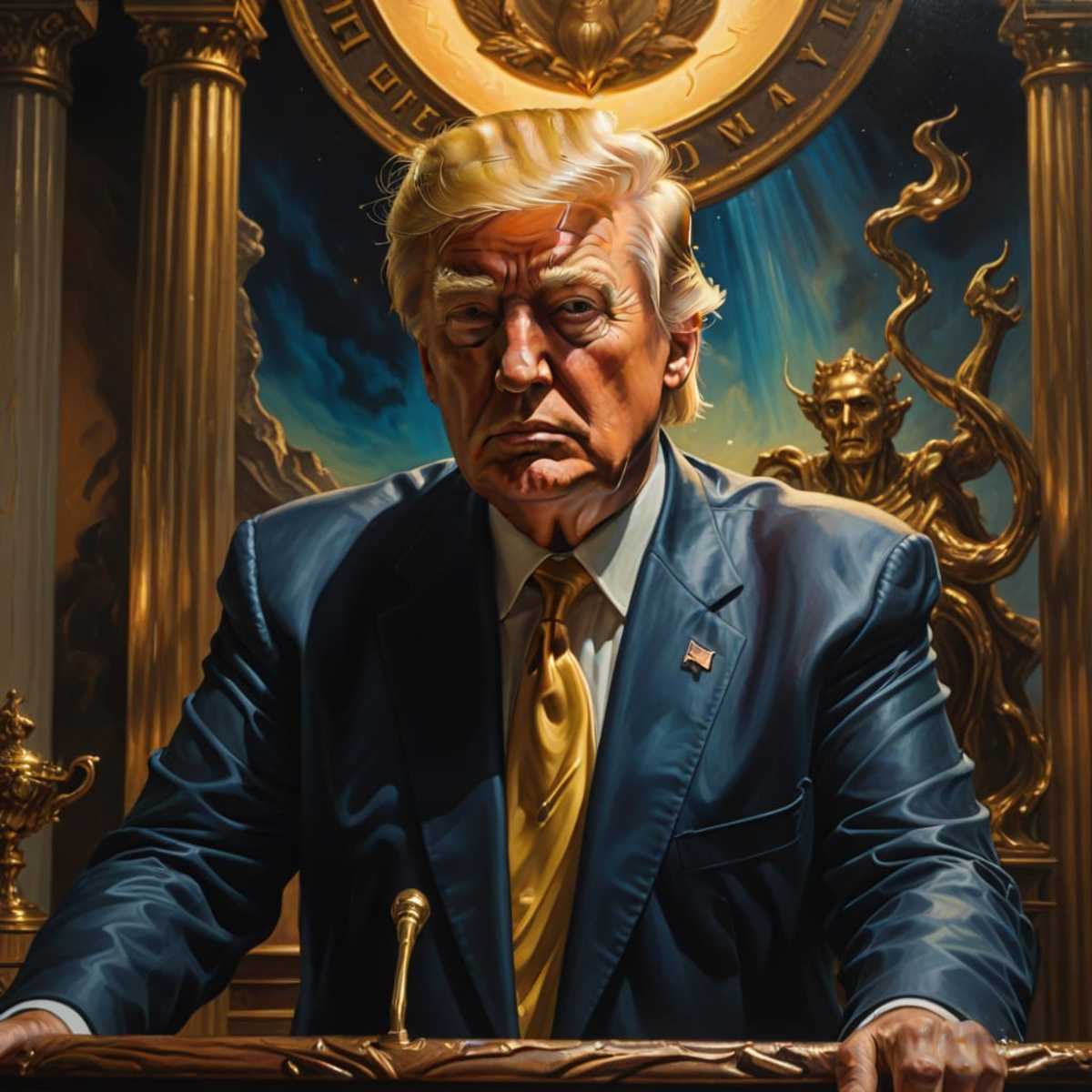SO - What Does the Mueller Report REALLY Say? Nothing Good for Donald Trump - Part 2: Obstruction
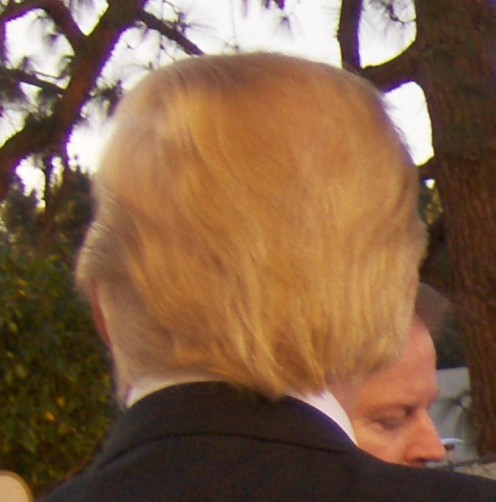
Legitimate Investigation
Part 1 of the this series was about the Conspiracy (Vol 1) of the Mueller investigation report. Part 2 is regarding Volume 2 - Obstruction of Justice.
Right out of the box, in the second paragraph, Robert Mueller puts down the Republican and AG William Barr's scenario that there was some sort of illicit FBI conspiracy that started the FBI investigation into the Trump Campaign. He says:
"Papadopoulos suggested to a representative of that foreign government [Australia] that the Trump Campaign had received indications from the Russian government that it could assist the Campaign through the anonymous release of damaging information to the Democratic presidential candidate Hillary Clinton. That information prompted the FBI on July 31, 2016, to open an investigation into whether individuals associated with the Trump Campaign were coordinating with the Russian government in its interference activities."
How much clearer can it be what the genesis of the investigation really was? Nevertheless, the Republicans continue to question the probes legitimacy in order to give Trump cover. The worst offender by far, because he is supposed to be neutral, is Attorney General William Barr. Barr is not neutral but a partisan defender of Donald Trump. Barr has read the report yet he says he is opening an investigation into how the probe started even though the DOJ Inspector General is already doing so - the question is why, doesn't he trust his IG? In Congressional testimony, Barr also said that the Trump campaign was "spied" upon, even though the intelligence community had previously said that he hadn't been. What gives? The only reasonable explanation is that it is true that William Barr is not doing his job as an impartial AG, but is firmly in the "protect Trump" camp (similar to Sen Phil Graham).
Did Donald Trump Obstruct Justice?
According to the Mueller Report - Probably. My feeling, and it is only that, is had the DOJ's Office of Legal Council not opined that "you cannot indict a sitting president", then Special Council Robert Mueller would have done just that! Let me explain why.
On May 6, 2019 over 400 former federal prosecutors signed an open letter declaring that Trump should be tried for obstruction - if he were a private citizen. In explaining why Elie Honig wrote:
"Each of us believes," the letter states, "that the conduct of President Trump described in Special Counsel Robert Mueller's report would, in the case of any other person not covered by the Office of Legal Counsel policy against indicting a sitting President, result in multiple felony charges for obstruction of justice."
And this wasn't a Democrat writing this (I don't know if Honig is a Democrat or Republican), the signatories came from both Republican and Democratic administrations. This was a broad condemnation by those who know what the law is and what they read in the Mueller report tells them that Trump probably broke the law.
One of the most condemning lines in the 400+ page report is when Mueller wrote
"if we had confidence after a thorough investigation of the facts that the President clearly did not commit obstruction of justice, we would so state"
Yet the Mueller report remained deafening silent when it had the chance to clear Donald Trump of the obstruction charges. It really is a binary choice - either there is insufficient evidence to indict or there is sufficient evidence to indict. Clearly, Mueller thinks there is enough evidence to indict (otherwise he says he "would have so stated"). But, as pointed out elsewhere, long-standing DOJ policy prevents him from doing so for a sitting president - therefore he was forced to punt.
But even there, Mueller didn't want to let it go. He pointed out that even though he can't be indicted now, Donald Trump can be indicted after he leaves office. Why would he add that if he didn't think he had a case?
Volume II - The Case of Obstruction of Justice Against Donald Trump
Volume II, the investigation of Obstruction of Justice, begins with these two, overriding points:
- It is not permissible, according to Department of Justice's Office of Legal Council's (OLC) opinion that a sitting president may not be indicted because it would "undermine the capacity of the executive branch to perform its constitutionally assigned functions" in violation of "the constitutional separation of powers."". This opinion has never been tested in court.
- At the same time, however, the OLC "recognizes that a criminal investigation during the President's term is permissible." This has been held up in court, several times.
This leaves Robert Mueller's team on the horns of a dilemma. That is, they may investigate Donald Trump for obstruction but, if they find sufficient evidence to indict - they are not permitted to.
Mueller addressed this problem with two additional points.
- Because the team was not able to indict Trump, should the evidence warrant it, then, in fairness to Trump, they are not allowed to conclude that Trump committed a crime. They couldn't because Trump had no opportunity in court to rebut the charges and bring his own evidence. Hence, the phrase "while this report does not conclude that the President committed a crime, it also does not exonerate him."
- Why no exoneration? Because the investigation did turn up evidence of a crime. If it had not then, as Mueller points out in his fourth point
"if we had confidence after a thorough investigation of the facts that the President clearly did not commit obstruction of justice , we would so state. Based on the facts and the applicable legal standards , however , we are unable to reach that judgment."
Mueller drives that point home even further when he says:
"The OLC opinion also recognizes that a President does not have immunity after he leaves office." (hint, hint)
This leaves Mueller open to undeserved criticism by those who know better, including Attorney General William Barr, that he didn't follow the mandate he was given by Deputy Attorney General Rod Rosenstein. One can presume that Mueller was blindsided by his long-time friend Barr when Barr accused Mueller, in Congressional testimony, that Mueller failed to do his job. Barr further subverted Mueller's work by 1) finding there was not evidence of obstruction - when there clearly was - and 2) mischaracterizing Mueller's conclusions. I suspect they are no longer friends. Mueller felt so strongly about this that he wrote a letter to Barr effectively chewing him out for his subterfuge (of course Mueller said it nicer than that but his point was clear).
In all, Mueller's team found 11 instances of where Donald Trump sought to impede or obstruct the investigation into Russian interference and his Campaigns involvement in it. Let's take a look.
The following are a brief synopsis of the "key issues" Mueller's investigation into Trump's obstruction of justice looked into. This will be followed by a more detailed discussion of each.
The Campaign's response to reports about Russian support for Trump
Questions about possible Russian support for the Trump Campaign emerged during 2016. When it was reported that the Russians were responsible for the Wikileaks stolen email dumps, "Trump publicly expressed skepticism that Russia was responsible for the hacks ..." Nevertheless the Trump "... Campaign officials privately sought information about any further planned WikiLeaks releases." At this time Trump, on several public occasions, "... denied having any business in or connections to Russia ..." He said this despite the fact that, as Michael Cohen later testified, "... the Trump Organization had been pursuing a licensing deal for a skyscraper to be built in Russia ..." as late as June 2016. Later, his personal lawyer Rudy Giuliani admitted it might have been as late as Oct 2017. Trump also expressed concerns people may not think his "win" was legitimate (which, in my opinion, looks to more and more not to be the case).
Conduct involving FBI Director Comey and Michael Flynn
Incoming National Security Advisor Michael Flynn, in mid-January 2017, lied to, among others, Vice President Pence about meetings he had with Russian Ambassador Sergey Kislyak ... about Russia 's response to U.S. sanctions on Russia for its election interference." The "among others" includes the FBI. On January 27, "... the day after the President was told that Flynn had lied "... the President invited FBI Director Comey to a private dinner at the White House and told Comey that he needed loyalty."
On February 14, "... the President cleared the Oval Office to have a one-on-one meeting with Comey. Referring to the FBI's investigation of Flynn, the President said , "I hope you can see your way clear to letting this go, to letting Flynn go. He is a good guy . I hope you can let this go." Comey didn't. Later, Trump asked "Deputy National Security Advisor K.T. McFarland draft an internal letter stating that the President had not directed Flynn to discuss sanctions with Kislyak." Because she didn't know if that was true, she declined.
The President's reaction to the continuing Russia investigation
On March 2, 2017, Attorney General Jeff Sessions recused himself. "In early March, the President told White House Counsel Donald McGahn to stop Sessions from recusing." - that would be obstruction. Trump "...expressed anger at the decision and told advisors that he should have an Attorney General who would protect him...." Trump made several more attempts over the ensuing months to get Sessions to "unrecuse" himself. As we know, he didn't and Trump ultimately fired him.
In March, Comey told a congressional hearing, in public, that there is an FBI counter-terrorism investigation of "the Russian government's efforts to interfere in the 2016 presidential election, ..." This includes links between the Trump Campaign and the Russians, In response Trump:
- "Reached out to the Director of National Intelligence and the leaders of the Central Intelligence Agency (CIA) and the National Security Agency (NSA) to ask them what they could do to publicly dispel the suggestion that the President had any connection to the Russian election-interference effort."
- Trump "... twice called Comey directly, notwithstanding guidance from McGahn to avoid direct contacts ... " Because Comey had assured Trump the President wasn't being personally investigated Trump asked him to publicaly "lift the cloud " of the Russia investigation. Comey wouldn't - and then -
The President's termination of Comey.
On May 3, 2017, Comey wouldn't tell Congress whether "... the President was personally under investigation." or not. Shortly thereafter, Trump fired Comey in a very unprofessional, insulting manner. In the process of preparing to fire Comey, Trump:
- "Insisted that the termination letter ..., state that Comey had informed the President that he was not under investigation."
- The day of the firing, Trump publicly told America he fired Comey from "recommendations from the Attorney General and Deputy Attorney General that Comey should be discharged for mishandling the Hillary Clinton email investigation."
- Trump later contradicted his public statement by publicly saying he "had decided to fire Comey before hearing from the Department of Justice."
- "The day after firing Comey, the President told Russian officials that he had 'faced great pressure because of Russia, ' which had been 'taken off' by Comey's firing."
- "The next day , the President acknowledged ... that he was going to fire Comey regardless of the Department of Justice's recommendation ... was thinking that 'this thing with Trump and Russia is a made-up story.' "
The appointment of a Special Counsel and efforts to remove him.
Once Special Counsel Robert Mueller had been appointed, because of the firing of FBI Director James Comey, Donald Trump began a long-term campaign to discredit and even get rid of the Special Counsel. In the process. Trrump:
- Demanded "that Sessions resign." When Sessions tried, Trump did not accept it.
- "The President told aides that the Special Counsel had conflicts of interest and suggested that the Special Counsel therefore could not serve." Even though his "advisors told him the asserted conflicts were meritless and had already been considered by the Department of Justice.". he continued his assault.
- "On June 17, 2017, the President called McGahn at home and directed him to call the Acting Attorney General and say that the Special Counsel had conflicts of interest and must be removed. McGahn did not carry out the direction , however, deciding that he would resign rather than trigger what he regarded as a potential Saturday Night Massacre"
Efforts to curtail the Special Counsel's investigation.
After McGahn, referenced above, "... the President made another attempt to affect the course of the Russia investigation." On June 19, 2017, he met with Corey Lewandowski, his former campaign manager, "... and dictated a message for Lewandowski to deliver to Sessions." "The message said that Sessions should"
- Publicly announce that ... the investigation was "very unfair" to the President,
- The President had done nothing wrong
- Sessions planned to meet with the Special Counsel and "let [him] move forward with investigating election meddling for future elections."
Lewandowski deferred from doing what Trump asked and asked a month later about it Lewandowski said it "would be delivered soon." It was at this point that Trump "publicly criticized Sessions" and "issued a series of tweets saying "Sessions's job was in jeopardy." In the end, the message was never delivered to Sessions. Lewandowski passed the job on to a "... senior White House official Rick Dearborn ..." to do the deed, but Dearborn never did.
Efforts to prevent public disclosure of evidence.
It finally came out, in the summer of 2017, that senior Campaign offices, Donald Trump Jr., Paul Manafort, and Jared Kushner met with Russians on June 9, 2016 in Trump Tower. The rational for the meeting was for the Trump Campaign to collect "dirt" on Hillary Clinton as "... part of Russia and its government's support for Mr. Trump." While the meeting did not produce the information the Trump Campaign had been hoping for, the Trump White House nevertheless tried to cover it up. "Before the emails [about the purpose of the meeting] became public, the President edited a press statement for Trump Jr. by deleting a line that acknowledged that the meeting was with "an individual who [Trump Jr.] was told might have information helpful to the campaign". The resulting memo only said "... that the meeting was about adoptions of Russian children. When the press asked questions about the President 's involvement in Trump Jr.' s statement, the President's personal lawyer repeatedly denied the President had played any role."
Further efforts to have the Attorney General take control of the investigation.
Trump made another attempt in early summer 2017 to change the course of the Mueller investigation. He "... called Sessions at home and again asked him to reverse his recusal from the Russia investigation. Sessions did not reverse his recusal." Again, in December 2017, "... the President met with Sessions in the Oval Office and suggested, ..., that if Sessions unrecused and took back supervision of the Russia investigation, he would be a '"hero." The President told Sessions, "I'm not going to do anything or direct you to do anything. I just want to be treated fairly." " Sessions did not unrecuse.
Efforts to have McGahn deny that the President had ordered him to have the Special Counsel removed.
When McGahn refused to have Mueller fired and threatened to resign if Trump pushed it, he had White House officials tell McGahn "... to dispute the story and create a record stating he had not been ordered to have the Special Counsel removed. McGahn told those officials that the media reports were accurate in stating that the President had directed McGahn to have the Special Counsel removed." Faced with that resistance "... The President then met with McGahn in the Oval Office and again pressured him to deny the reports." McGahn refused.
Conduct towards Flynn, Manafort, (Redacted but probably Stone).
"After Flynn withdrew from a joint defense agreement with the President and began cooperating with the government,..." Trump did the following:
- Left a message for "... Flynn 's attorneys reminding them of the President 's warm feelings towards Flynn, which he said "still remains," and asking for a "heads up" if Flynn knew "information that implicates the President."
- When told they couldn't do that, "... the President's personal counsel said he would make sure that the President knew that Flynn 's actions reflected "hostility" towards the President."
Conduct involving Michael Cohen.
Michael Cohen, Trump's former lawyer and fixer, once famously said that he "would take a bullet" for Trump. When Trump turned on him after the FBI raided Cohen's home's and offices and he became a cooperating witness. "In 2017, Cohen provided false testimony to Congress about ..." Trump's Moscow tower project. Cohen said he lied "... in an effort to adhere to a "party line" that Cohen said was developed to minimize the President's connections to Russia. While preparing for his congressional testimony, Cohen had extensive discussions with the President 's personal counsel, who , according to Cohen , said that Cohen should "stay on message" and not contradict the President." After the FBI raids in April 2018, "... the President publicly asserted that Michael Cohen would not "flip," contacted him directly to tell him to "stay strong," and privately passed messages of support to him." When Cohen did "flip" Trump tweeted that he was a "rat," and suggested that his family members had committed crimes."
It is with these instances of obstruction where Mueller built his case against Donald Trump.
Obstruction Without an Underlying Crime
The Mueller Report begins its detailed review of their obstruction of justice case by laying out why they can proceed with this aspect of the investigation even though they found that there was not enough evidence to convict Donald Trump, or anyone in his Campaign, of conspiracy. The following are the points that were offered:
- Some of the obstruction issues, such as firing Comey, are within a presidents Article II authority
- "At the same time , the President's position as the head of the Executive Branch, provided him with unique and powerful means of influencing official proceedings, subordinate officers , and potential witnesses - all of which is relevant to a potential obstruction-of-justice analysis."
- Normally, the purpose of obstruction of justice is to cover up a crime. In this case, Mueller was not able to establish beyond a reasonable doubt "that the President was involved in an underlying crime related to Russian election interference".
- That said, "obstruction statutes do not require proof of such a crime" and therefore "requires consideration of other possible motives for his conduct."
- One of the things Mueller's team considered to establish obstruction are Trump's public statements - "... many of the President's acts directed at witnesses, including discouragement of cooperation with the government and suggestions of possible future pardons, took place in public view." That said, Mueller states "... no principle of law excludes public acts from the reach of the obstruction laws. If the likely effect of public acts is to influence witnesses or alter their testimony, the harm to the justice system's integrity is the same."
- This is important - "Although the series of events we investigated involved discrete acts, the overall pattern of the President's conduct towards the investigations can shed light on the nature of the President 's acts and the inferences that can be drawn about his intent."
- Mueller's team chose to consider Trump's actions in two parts: 1) from "the President's first interactions with Comey through the President 's firing of Comey." and 2) and the period involving Trump's "public attacks on the investigation , non-public efforts to control it, and efforts in both public and private to encourage witnesses not to cooperate with the investigation."
- During the first part that time , "the President had been repeatedly told he was not personally under investigation." The second part began when, "after the firing of Comey and the appointment of the Special Counsel" Trump "became aware that his own conduct was being investigated in an obstruction-of-justice inquiry. "
- Trump's personal counsel raised both statutory and constitutional defenses which Mueller considered. In the first case, they found that, indeed, statutes do provide for the investigation of a president for obstruction of justice. In the second case, Mueller found, bottom line, that "Under applicable Supreme Court precedent, the Constitution does not categorically and permanently immunize a President for obstructing justice through the use of his Article II powers ." Therefore, Mueller can investigate.
- While Mueller makes clear in his commentary that he is prohibited from forming a judgement as to Trump's guilt as to whether he obstructed justice or not he does lay the ground work for others to do so, either through impeachment or prosecuted after he leaves office. He makes the following five observations to this end.
- 1 - "The evidence we obtained about the President's actions and intent presents difficult issues that would need to be resolved if we were making a traditional prosecutorial judgment."
- 2 - "At the same time, if we had confidence after a thorough investigation of the facts that the President clearly did not commit obstruction of justice, we would so state." - and they did not make such a statement.
- 3 - "Accordingly, while this report does not conclude that the President committed a crime, it also does not exonerate him."
- 4 - "The conclusion that Congress may apply the obstruction laws to the President 's corrupt exercise of the powers of office accords with our constitutional system of checks and balances and the principle that no person is above the law." - this would be the call for Congress to impeach Trump if they so determine.
- 5 - "The OLC opinion also recognizes that a President does not have immunity after he leaves office" - this would be the call for future prosecutor to go after Trump if the facts that Mueller presents warrant it.
The Evidence
This article is getting a bit long and this next section will be just as long. Consequently, please go to Part 3 to see the evidence that Mueller presents.
© 2019 Scott Belford

